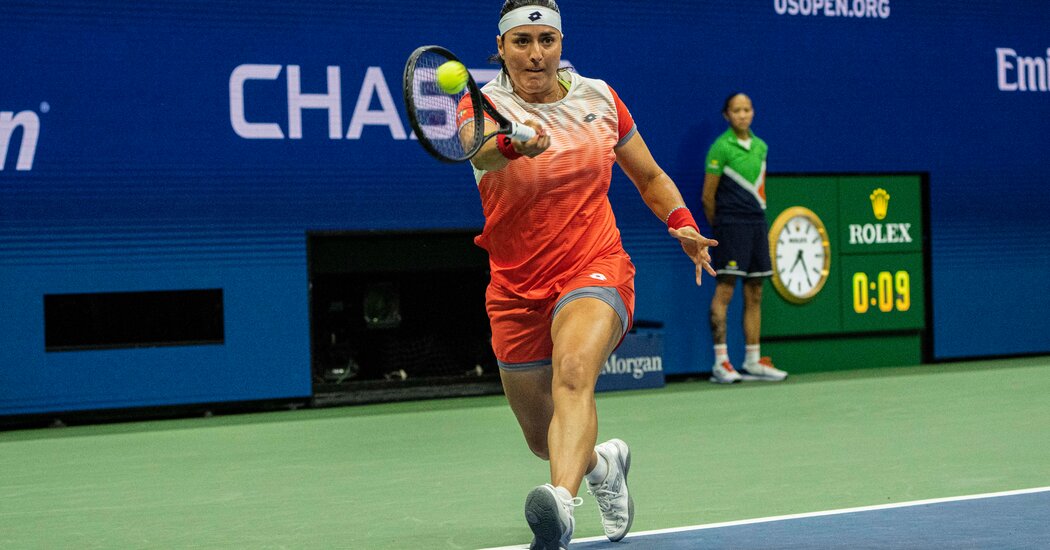
At the U.S. Open, Ons Jabeur Cruises to the Women’s Final
It has been a breakthrough year, and Ons Jabeur, whom her fellow Tunisians have nicknamed the Minister of Happiness, brought some more sunshine to her country and her season on Thursday night.
Her opponent in the U.S. Open women’s singles semifinals was Caroline Garcia, a French player with the hottest hand in tennis. But Jabeur met the moment with power and precision; with variety and guile.
She won the first set in 23 minutes as Garcia pressed and Jabeur slammed aces and chipped backhands that skidded low on the blue Arthur Ashe Stadium hardcourt.
She closed out the match 6-1, 6-3 in just 66 minutes, stopping Garcia’s 13-match winning streak and punctuating the rout by shouting with delight and falling to the court before rising quickly to embrace Garcia, a friend, at the net.
There is much to celebrate. After reaching her first Grand Slam singles final at Wimbledon in July, where she lost to Elena Rybakina of Kazakhstan, Jabeur has backed that up with a run to the final in New York, where she will face the winner of Thursday’s second semifinal between No. 1 Iga Swiatek of Poland and No. 6 Aryna Sabalenka of Belarus.
“Two in a row feels amazing,” Jabeur said in her on-court interview of her back-to-back major finals. “After Wimbledon, there was a lot of pressure on me, and I’m really relieved that I can back up my results.”
Jabeur, seeded fifth after being ranked as high as No. 2 earlier this year, is not only a symbol for Tunisia. She is a symbol for a region and a continent as the first Arab and African woman to reach a U.S. Open singles final.
But the goal, as Jabeur’s poised and relentless performance made clear on Thursday night, is a first major title.
“She knows now where she’s going, and she knows now what she wants,” said Melanie Maillard, a French performance psychologist who has worked with Jabeur since 2016. “She’s given herself the means. She’s dedicated and so determined.”
It has been a long and challenging process for Jabeur, 28, to believe that someone from a modest background and a nation that had never produced a top-10 tennis player could hit the highest notes in a global sport. She spent long stretches training outside Tunisia in France and away from home despite her close connections with her family and her roots.
But Jabeur also knew what she had been hearing since her youth about her talent: her innate feel for the ball; her capacity to create angles and change speeds and spins, even on the move.
“She sacrificed many things since she was little to experience this adventure,” Maillard said in an interview with the French newspaper L’Équipe this week. “She needed to feel that she could make progress in terms of her self-confidence, to believe completely in her project. She sensed clearly that she had something special. She had been told that since she was young, but she could not quite feel it herself. When she contacted me, she needed to learn to know herself. To understand why things had gone the way they had gone so far and to understand what she could put in place to go where everybody seemed to think she was capable to go.”
Though Thursday’s duel in Ashe Stadium represented new ground for Jabeur and Garcia — neither had been in a U.S. Open semifinal — it also was a flashback. They were junior rivals who played in the U.S. Open girls event in 2010 in the quarterfinals.
Jabeur won that one in straight sets, as well, and has now beaten Garcia three times on tour in straight sets.
